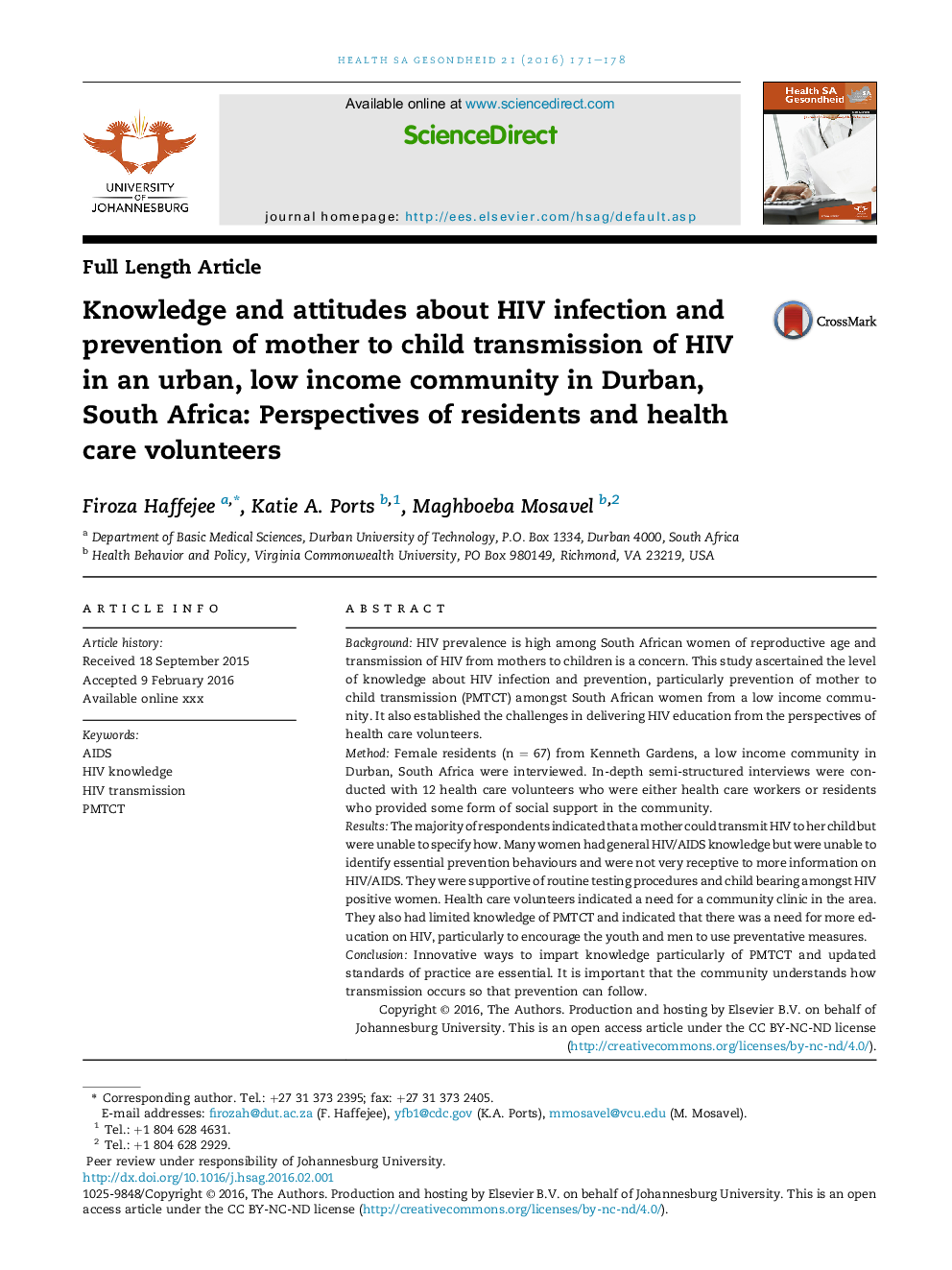| Article ID | Journal | Published Year | Pages | File Type |
|---|---|---|---|---|
| 2650625 | Health SA Gesondheid | 2016 | 8 Pages |
BackgroundHIV prevalence is high among South African women of reproductive age and transmission of HIV from mothers to children is a concern. This study ascertained the level of knowledge about HIV infection and prevention, particularly prevention of mother to child transmission (PMTCT) amongst South African women from a low income community. It also established the challenges in delivering HIV education from the perspectives of health care volunteers.MethodFemale residents (n = 67) from Kenneth Gardens, a low income community in Durban, South Africa were interviewed. In-depth semi-structured interviews were conducted with 12 health care volunteers who were either health care workers or residents who provided some form of social support in the community.ResultsThe majority of respondents indicated that a mother could transmit HIV to her child but were unable to specify how. Many women had general HIV/AIDS knowledge but were unable to identify essential prevention behaviours and were not very receptive to more information on HIV/AIDS. They were supportive of routine testing procedures and child bearing amongst HIV positive women. Health care volunteers indicated a need for a community clinic in the area. They also had limited knowledge of PMTCT and indicated that there was a need for more education on HIV, particularly to encourage the youth and men to use preventative measures.ConclusionInnovative ways to impart knowledge particularly of PMTCT and updated standards of practice are essential. It is important that the community understands how transmission occurs so that prevention can follow.
